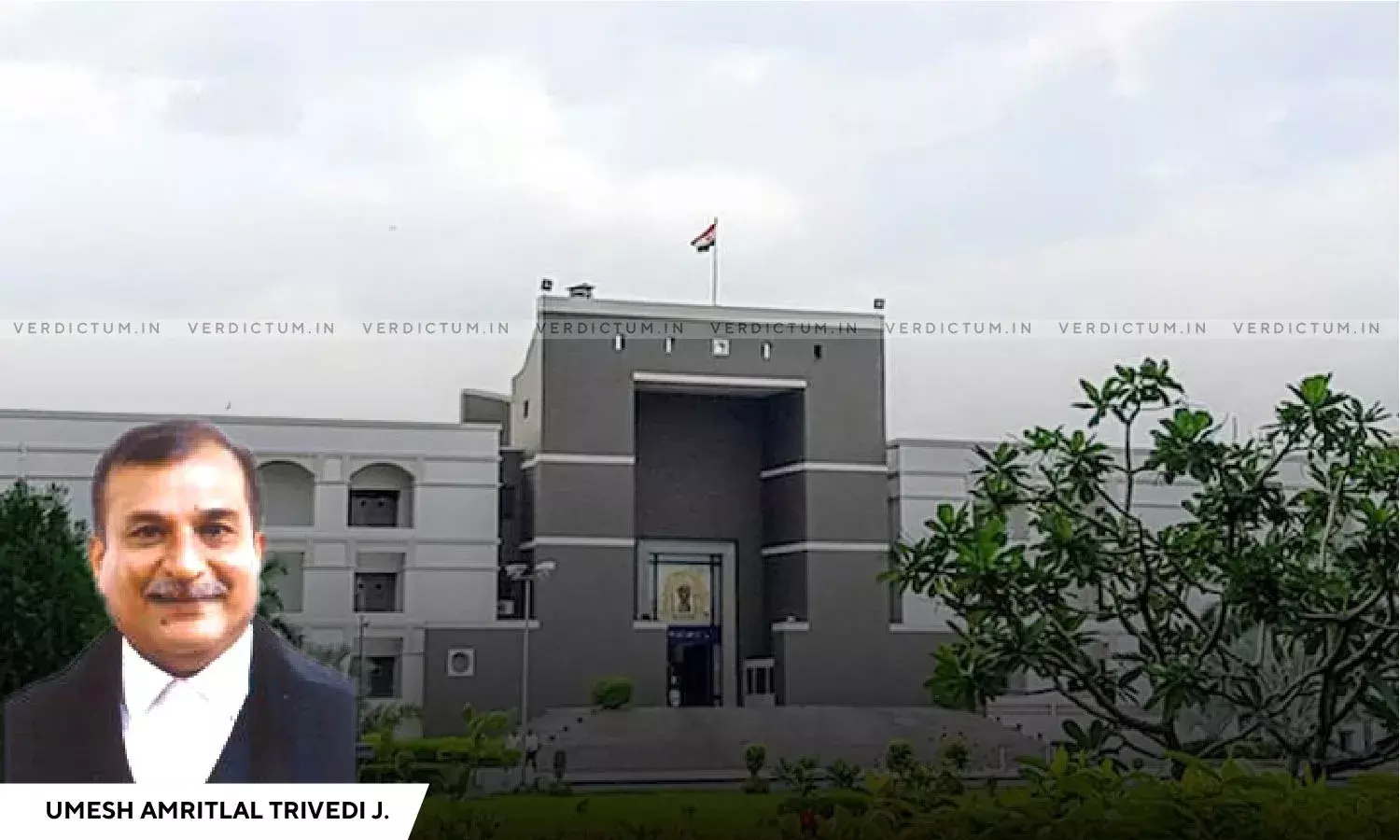“In Entire Career As Advocate & Judge, Never Seen Prosecution Based Only On Requirement Of Licence”: Gujarat High Court Dismisses Appeal By Food Inspector
The Court said that in the absence of any sample collection or reliable contemporaneous records, prosecution under Rule 50 of the PFA Rules could not be sustained.

Justice Umesh A. Trivedi, Gujarat High Court
The Gujarat High Court has dismissed a criminal appeal filed by a Food Inspector of the Surat Municipal Corporation challenging the acquittal of a man accused of selling packaged drinking water without a valid licence. The Court found that the prosecution failed to establish that the water sold fell within the scope of “packaged drinking water” as defined under the Prevention of Food Adulteration Act, 1954, and held that no case was made out under Rule 50 of the PFA Rules, 1955.
A Single Bench of Justice Umesh A. Trivedi observed, “As such, in the entire career as an advocate as also Judge, I have never seen any prosecution only based on requirement of license where premises of manufacturing of food article is visited without any sample thereof drawn. As such, everywhere sample of food is drawn for the purpose of examining whether it confirms to the standards prescribed under the Act or Rules or not.”
The Court added, “The evidence led by the prosecution does not inspire confidence in absence of any contemporaneous record that the accused was dealing in ‘packaged drinking water’ as claimed by the appellant – Food Inspector.”
Advocate Kaushal D Pandya appeared for the Appellant, while Additional Public Prosecutor Megha Chitalia represented the Respondents.
Brief Facts
The Food Inspector, Appellant herein, had lodged a complaint under Section 7(3) read with Section 16 of the Prevention of Food Adulteration Act, 1954, alleging violation of Rule 50 of the Prevention of Food Adulteration Rules, 1955, and Rule 5 of the Gujarat Rules, 1961. It was alleged that the Respondents were running a business under the name ‘Swagat Water’, where they stored and supplied packaged drinking water without possessing the requisite licence.
According to the Appellant, a site inspection revealed a functioning water treatment unit and multiple plastic carboys filled with water being loaded into a tempo. He further claimed that despite being given time to produce a valid licence or payment receipt, the Respondents failed to do so, leading to the filing of the complaint with prior sanction from the Local Health Authority.
The Respondents denied that he was manufacturing or selling “packaged drinking water,” asserting that the water supplied was natural drinking water, chilled and distributed in bulk containers, with no packaging, processing, labelling, or additives involved. He relied on prior written representations addressed to the Surat Municipal Corporation clarifying this position.
The Trial Court acquitted the Respondents. Aggrieved by the order of the Trial Court, the Appellant approached the High Court.
Reasoning of the Court
The Court observed that the prosecution failed to present any contemporaneous record showing that the water in question was indeed “packaged drinking water.” Despite alleging that carboys filled with water were stored and supplied, no samples were drawn, no packaging labels were seized, and no independent witnesses were examined.
The Bench noted that the claim regarding signage describing the premises as selling “packaged drinking water” appeared for the first time during oral evidence and was not mentioned in the original complaint, notice, or sanction application.
The Court observed, “If the appellant – complainant asserts that respondent – accused was manufacturing ‘packaged drinking water’ at the place of inspection… he would have so reflected in the complaint, even if he has decided not to take sample of any ‘packaged drinking water’.”
Criticising the procedural conduct of the prosecution, the Court remarked, “In the entire career as an advocate as also Judge, I have never seen any prosecution only based on requirement of license where premises of manufacturing of food article is visited without any sample thereof drawn.”
The Court relied on the letters sent by the Respondent No.1 to the Corporation well before the inspection, which stated that the water being sold was “natural drinking water” and not covered under the licensing regime, which had not been responded to by the municipal authority.
The Bench noted, “Their consistent case is that ‘water’ simplicitor is not a ‘food’ as defined under Section 2(v) of ‘the Act, 1954’, which is being specifically excluded from the provisions of the Act and the Rules.”
The Court held that the prosecution failed to establish its case beyond reasonable doubt and found no ground to interfere with the acquittal, stating, “The defence raised appears to be more probable than the case pleaded by the prosecution…They have very categorically made clear that they are not dealing either in ‘mineral water’ or even ‘packaged drinking water’. Though there are several such Institutions, which deal with simple water and chilling process named by them in their communications except these two Institutions, no requirement of license was asked for from any of the Institutions named therein. Not only that, neither the Food Inspector nor competent authority in the Surat Municipal Corporation even attempted to reply their two communications made much prior to the date of visit.”
Consequently, the Court dismissed the appeal and refused to interfere with the order of the Trial Court.
Cause Title: S.C. Desai v. Parshotambhai Jadavbhai Monpara & Anr. (R/Criminal Appeal No. 1316 Of 2008)
Click here to read/download Judgment


